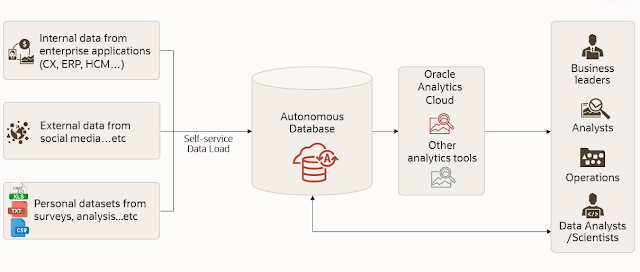According to McKinsey “Savvy marketers are rethinking their tech and data strategies to double down on precision marketing following COVID-19. By capturing new data, searching for new behavioral relationships, and enabling rapid experimentation, marketers can seize granular growth opportunities and enter the recovery with significantly greater ROI and resilience.”
As opposed to reverting to mass communications and promotions, marketers who can rapidly integrate new data sources and update their modeling approach will be able to spot emerging trends, shifts in customer behaviors, and target specific groups with tailored messaging, content, and offers.
Technology is key to this equation. It is therefore not surprising that according to Gartner, “marketing analytics proficiency is critical for success.”
How can marketers and data analysts boost data-driven marketing initiatives to deliver business growth—while ensuring data governance and security?
Real-time insights to drive growth
Let’s consider the following customer stories outlining how, with Oracle’s solution, marketing teams have been able to dramatically improve their data analytics processes—increasing customer satisfaction, and revenue.
Benefit One offers membership-based services to about 11,000 organizations and 9 million people in Japan. The Benefit One product marketing department had been handling data aggregation with a standalone tool to extract data about member trends, then manually aggregated and analyzed that data with spreadsheets. Using Oracle Autonomous Database for analytics and data warehousing, along with Oracle Analytics Cloud, allowed the company to fully automate the processing of massive datasets, and eliminate the need to manually extract data. Report generation time was slashed by 90%. With daily reports, Benefit One gained a real-time understanding of changes in the services members are using. Having current data lets the company create more effective marketing plans, like quickly deploying new sales promotions. “Oracle Autonomous Database allowed us to raise our productivity to a startling degree, but what caught us off guard was how helpful it was to even the heads of business departments with no IT experience.” said Masami Matsuzaki, Head of Data Management Group, Product Marketing Department, Benefit One.
Smartclip helps its customers plan, create, target, and analyze digital advertising on platforms such as news sites, blogs, social platforms, and smart TVs. Smartclip had been storing its data, as well as the performance data from campaigns, on many different and siloed platforms, which meant it couldn’t easily be analyzed. Plus, using spreadsheets made work slow and risked generating multiple versions of the truth. Smartclip’s Oracle solution lets it combine data from more than 20 disparate sources into Oracle Autonomous Database for analytics and data warehousing—allowing the company to drive secure collaboration around a single source of truth. Smartclip has gone from seeing profitability in five areas to a breakdown along 700 product lines. The company went from weekly to daily updates, with reports on all advertising campaigns in about 15 minutes—allowing them to react more quickly to optimize campaigns. The solution also freed Smartclip analysts from manual work with spreadsheets and opened up a new level of self-service analytics—business users can now access, prepare, collaborate on, analyze, and share data and insights for much faster service to customers. “Our children don't know what life without a mobile phone is like, they think it's wonderful and can't imagine it any other way. That’s the way I feel about Autonomous Database. Many more will probably feel this way in the future." said Alexys Urvoy." Head of Business and Competitive Intelligence, SmartClip
Of the 100,000-plus gas stations across the US, roughly 65% are independently owned under a patchwork of local groups. Drop Tank aims to stitch these stations together to give major fuel brands as well as independent owners a much better loyalty program. Drop Tank uses Autonomous Database for analytics and data warehousing with Oracle Analytics Cloud to analyze daily point-of-sale fuel data from the pump, as well as packaged goods sales data inside the convenience stores. Through customer segmentation and prediction models, it creates targeted promotions and measures marketing campaign effectiveness. Not only does the Oracle data platform help Drop Tank reduce time to market and scale, but it eliminates database administration such as provisioning, tuning, securing, and patching. Instead of hiring more database administrators to support its rapid growth, the loyalty company staffs data scientists who can take advantage of the tools to experiment with marketing campaigns in days compared to weeks or months.
A complete, self-service, secure data analytics solution
Oracle delivers a complete, self-service, secure data analytics solution empowering marketing teams to rapidly get the deep, trustworthy, data-driven insights they need to make quick decisions.
The architecture of the solution is represented below:





0 comments:
Post a Comment